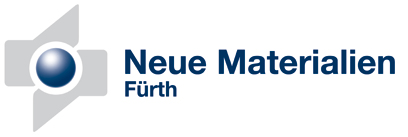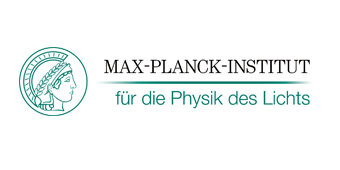Scientific Environment
Scientific Environment
The Master’s Program Advanced Materials and Processes is bound in into a very dynamic and innovative scientific environment which consists of different institutions.
Friedrich-Alexander-Universität Erlangen-Nürnberg (FAU)
Founded in 1743 and being one of Germany’s largest universities, Friedrich-Alexander-Universität Erlangen-Nürnberg (FAU) hosts the MAP program. Motivated by the rich history it was a natural step of developing and implementing MAP in 2005 at its Faculty of Engineering. FAU is world wide known for its excellent reputation and for many awarded scientists of high influence. Besides, FAU has been successful in the acquisition for two projects funded in the Excellence Initiative by the German Federal and State Governments to Promote Science and Research at German Universities: the Cluster of Excellence Engineering of Advanced Materials (EAM) and the Erlangen Graduate School in Advanced Optical Technologies (SAOT). Furthermore, the EAM, which is closely connected with the MAP program, has been awarded a total of 73 million euros in funding.
Host Departments
The Master’s Program in Advanced Materials and Processes is a joint venture which was established by two academic departments of the Friedrich-Alexander-Universität Erlangen-Nürnberg. The creation of MAP in 2005 reflected the substantial growing research collaborations between the two departments. Here you can read about the host departments.
Department of Chemical and Biological Engineering (Department Chemie- und Bioingenieurwesen, CBI)
Department of Chemical and Biological Engineering (Department Chemie- und Bioingenieurwesen, CBI)

The Department of Chemical and Biological Engineering (CBI) emerged from the Institute of Technical Chemistry, which was founded in 1965; by 2010, it has grown into a department of 11 subject chairs, along with further assistant professorships and institutes.
Besides the established research fields of technical chemistry and thermofluid dynamics, additional research areas such as biotechnology, particle technology, energy technology and systems engineering has been strengthened through the establishment of new chairs through the years: In recognition of the increasing importance of modelling in process engineering, a Chair of Multiscale Simulation was established in 2009. With the foundation of the Chair of Medical Biotechnology, the process-technology-based Life Science Engineering has been given a clear medical and human biotechnological direction within the CBI Department. The Chair of Energy Process Engineering was established in 2011 with focus on optimizing the process engineering of energy chains by means of simulation and experiment.
The Department has gained an outstanding reputation in industry and research, as demonstrated by an increasing amount of third-party funding.
As an example of excellent research in the CBI department, MAP chair Professor Nicolas Vogel and his colleagues introduce “Bioinspired Design” in a German-language video on YouTube.
Department of Materials Science and Engineering (Department Werkstoffwissenschaften, WW)
Department of Materials Science and Engineering (Department Werkstoffwissenschaften, WW)

The Department of Materials Science and Engineering (WW) in Erlangen currently has nine chairs and 19 professorships and is thus the largest materials science department in a German university. Approximately one third of all materials scientists educated in Germany over the past decades gained their qualification from the University of Erlangen-Nürnberg. The department offers students the opportunity to study and conduct research in all classes of materials, with equal attention given to traditional construction materials as well as modern functional materials, covering both the natural sciences and the engineering aspects of the broad field of Materials Sciences and Engineering.
The Department of Materials Science and Engineering has an exceptional reputation, not only nationally but also worldwide. The latest 2022 QS World University Subject Ranking placed it among the Top 100 internationally and among the Top 5 in Germany.
Exceptional opportunities for technology transfer as well as for interdisciplinary research activities into the application of materials are further provided by collaborative partnerships with Neue Materialien Fürth GmbH and the Central Institute of Advanced Materials and Processes in Fürth. The particular strength of the Erlangen Department of Materials Sciences was highlighted in the successful 2007 bid for an Erlangen Cluster of Excellence Engineering of Advanced Materials (EAM), an award approved by the German Research Foundation (DFG) and the National Science Council. All nine Materials Science and Engineering chairs are involved in this initiative in varying forms.
Research and Academic Highlights
Discover the latest updates in our News section and explore detailed insights on our Focal Subjects.
We work closely with all chairs of the departments CBI and WW. Explore their pages for additional highlights and insights.
Participating Institutions
- Friedrich-Alexander-Universität Erlangen-Nürnberg (FAU)
- Department of Chemical and Biological Engineering (CBI), FAU Erlangen-Nürnberg

- Department of Materials Science and Engineering (WW), FAU Erlangen-Nürnberg

- Fraunhofer Institute for Integrated Systems and Device Technology IISB, Erlangen

- Neue Materialien Fürth GmbH (NMF), Fürth

- Max Planck Institute for the Science of Light, Erlangen

- Institute of Advanced Materials and Processes (ZMP), Erlangen

- Erlangen Catalysis Resource Center (ECRC), Erlangen

- ZOLLHOF, Nuremberg
Elite Network of Bavaria (ENB)
We are proud to look back on 20 years of inspiring collaboration with the ENB and are grateful for their valuable contributions across many areas. Being a member of the ENB as a funded Elite Master’s Program has been a privilege. As the maximum funding period has now been completed, MAP will continue as a regular degree program at FAU, independent of the ENB. On our website, we would like to highlight what has been made possible through 20 years of ENB support:
The declared goal of the Elite Network of Bavaria (ENB) is the best possible promotion of the brightest minds at the Bavarian universities. For this purpose it assigns scholarships to especially talented students and postgraduates on the one hand and promotes Elite Master’s Programs and international postgraduate courses on the other hand.
Elite Master’s Programs, which are an additional offer to existing programs of the Bavarian universities, establish excellent study conditions for highly motivated and talented students. The students achieve the qualification for top positions in research and management through intense professional support.
The most important aspects which characterize elite programs are their interdisciplinarity, high support intensity and a strong integration of different centers of science and research. This integration establishes optimal surroundings for successful research activities.
The excellent quality of the Elite Master’s Programs is ensured by several bodies, especially by an expert commission and the lawmaking body through the Bavarian Act for the Funding of Elite Programs (Bayerische Eliteförderungsgesetz). In addition the participating postgraduate courses and elite study programs are evaluated regularly.
MAP was established by the ENB as an Elite Master’s Program in 2005 and run for 20 years until September 2025. Students from the cohort 2024 onwards will be enrolled in the regular Advanced Materials and Processes degree program. It continues to provide high quality education, very low student-to-faculty ratio, small class size and individualized supervision for a selected number of students from a competitive selection process.
Cluster of Excellence Engineering of Advanced Materials (EAM)
The Cluster of Excellence Engineering of Advanced Materials (EAM) is the only interdisciplinary research collaboration of its type in Germany to focus on the investigation of functional materials and their processing at all length scales. Its research centers on the fundamental and applied aspects of designing and creating novel high-performance materials.
The close relation between EAM and the MAP program is not just shown in the involvement of EAM researchers in the offered courses. EAMs Graduate School GS AMP also supports MAP, giving the students the opportunity to contribute to interdisciplinary EAM research as part of their MAP miniprojects or Masters thesis.
The following video gives you exemplary insights into the Cluster of Excellence EAM by presenting the work of its Interdisciplinary Center for Functional Particle Systems (FPS).
Functional Particle Systems
https://www.video.uni-erlangen.de/webplayer/id/23521
This video on the work of FPS is provided by the FAU video channel.
Partner universities
Between 2005 and 2025, the University of Bayreuth and the University of Würzburg were official partners of the MAP program under ENB funding. Although the elite status and formal connection with the ENB have now concluded, our academic friendship with both universities will continue.
Universität Bayreuth
Universität Bayreuth
An important MAP partner is the Universität Bayreuth, a „young“ German university having existed only since 1975 and a leading university in innovative research and teaching. For several years the university Bayreuth has gained again and again top positions in different university rankings. Especially the chairs of Polymere Werkstoffe and Bioprozesstechnik play an important role within the MAP program.
Universität Würzburg
Universität Würzburg
With the Julius-Maximilians-Universität Würzburg MAP has another excellent partner within the Franconian area. Many brilliant scholars and scientists have been involved in research and teaching since the university was founded in 1402. 14 Nobel Laureates were among those researchers: e.g. Rudolf Virchow, Carl Siebold, and Franz Brentano. Wilhelm Conrad Röntgen is known for discovering the X-rays in Würzburg in 1895, and Klaus von Klitzing for discovering the Quantum-Hall Effect. Especially the Chair of Technical Physics is strongly connected with the MAP program.
